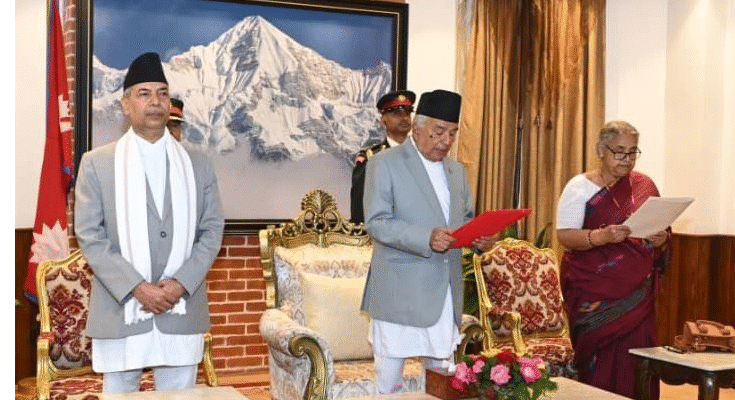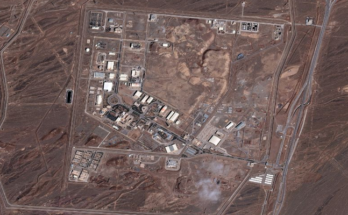Kathmandu: In a historic first, Sushila Karki, Nepal’s former Chief Justice, was sworn in as the country’s interim Prime Minister on Thursday, breaking the glass ceiling in Nepal’s male-dominated political landscape. The oath of office was administered by President Ramchandra Paudel at an official ceremony in Kathmandu.
Karki’s appointment comes in the wake of intense political turmoil, following the dissolution of Parliament and the resignation of former Prime Minister KP Sharma Oli amid mass anti-corruption protests led by Nepal’s Gen-Z movement. Her rise to power marks a critical turning point as the nation grapples with demands for accountability, democratic reform, and constitutional change.
Sushila Karki has been sworn in as the new Prime Minister and is tasked with forming an interim government to hold elections for the new leadership of the country. #NepalProtests
Read about the life and career of Nepal’s first female prime minister: https://t.co/gqOzeSWIX0 pic.twitter.com/KxpiDZgh6I
— Nepali Times (@NepaliTimes) September 12, 2025
Renowned for her integrity and judicial independence, Karki served as Nepal’s first female Chief Justice from July 2016 to June 2017. During her tenure, she gained national acclaim for landmark decisions on transitional justice, electoral disputes, and human rights protections. With over four decades of legal experience, Karki began practicing law in 1979, became a Supreme Court Justice in 2009, and earned the status of senior advocate in 2007.
Born in Biratnagar in 1952, Karki holds degrees in political science and law, equipping her with deep insights into both governance and jurisprudence. Her appointment was strongly endorsed by the Gen-Z protest leaders, who view her as a neutral, capable, and principled figure capable of steering the nation through crisis.
The Gen-Z movement, which has emerged as a formidable political force, is pushing not only for clean governance but also for constitutional reforms to better reflect the people’s will. Protest leaders argue that Nepal’s existing political system has failed to provide stability, justice, or transparency.
As Nepal enters a volatile transitional phase, the world watches closely. Karki faces the formidable challenge of balancing public demands, legal integrity, and the urgent need to restore democratic order in a deeply fractured political landscape.




